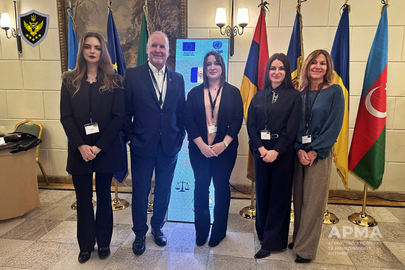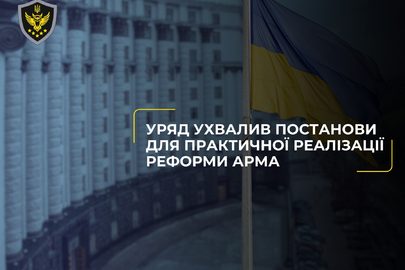On the request of the media, ARMA clarifies the peculiarities of legal enforcement of Article 21 of the Law of Ukraine «On the National Agency of Ukraine for Finding, Tracing and Management of Assets Derived from Corruption and Other Crimes».
According to the criminal procedural legislation of Ukraine:
Firstly, all assets transferred to ARMA by the court are material evidence of committing a criminal offense that retains its traces or contains other information that can be used as evidence of the fact or circumstances that are being established during criminal proceedings;
Secondly, such assets are seized in a criminal proceeding, which by its nature is a temporary deprivation of the owner of the rights to alienation, disposal and use of the assets. Thus, the owner is deprived (not the ARMA, but the court) his rights to alienate, dispose and use of these assets not from the moment of the transfer of assets into ARMA`s management, but much earlier, from the day the court ordered its seizure;
Thirdly, seizure of assets and its transfer to ARMA are actions and decisions of pre-trial investigation bodies, prosecutor’s office and court, which are carried out in order to achieve the objectives of criminal proceedings determined by the CPC of Ukraine. ARMA is neither a party nor a participant of criminal proceedings, and therefore in no way can influence any actions and the adoption of appropriate decisions;
Fourthly, Article 21 of the Special Law does not establish a procedure for the transfer of assets (material evidence) for the storage to ARMA. These issues are regulated exclusively by Article 100 of the CPC of Ukraine. According to the Article 100 of the CPC of Ukraine, the bodies of pre-trial investigation, the prosecutor's office and the court transfer to ARMA assets for storage and authorize ARMA on certain actions.
That is, the issue of transferring and empowering ARMA by the court to store material evidences defined by legislation, namely Article 100 of the CPC of Ukraine.
On the other hand, Article 21 of the Special Law establishes only limits of authority and the way of actions for persons selling assets on behalf of ARMA and carry out asset management measures, on the basis of concluded asset management agreement with ARMA in accordance with Chapter 70 of the Civil Code of Ukraine, taking into account the peculiarities defined by the Special Law.
Therefore, Article 21 of the Special Law establishes a certain rule on coordination of action with assets owner, only for the managing company, and there are no restrictions or obligations for ARMA in part 7 of this Article.
In this regard, Article 21 of the Special Law does not establish any obligations for ARMA to coordinate its actions with the owner of the assets.
We can continue to bring numerous legal arguments and argue the legality of the actions and decisions of ARMA. However, we would like to add another practical argument.
At the end of 2018, ARMA received numerous materials from the prosecutor's office that were provided by State-Owned Guard and Protection Service which is currently providing protection of the seized assets of the “Rostok-Holding” group, with relevant photo and video evidence, which gave sound reason to believe, that massive unlawful acts was done by unidentified persons with assets (actual evidence), which are seized in criminal proceedings. That is why ARMA, acting in synergy with the pre-trial investigation bodies and prosecutor's offices, appointed temporary executives.
We have to report that today circumstances and facts on that are already being investigated by the relevant law enforcement agencies, with the participation of authorized persons of ARMA.


